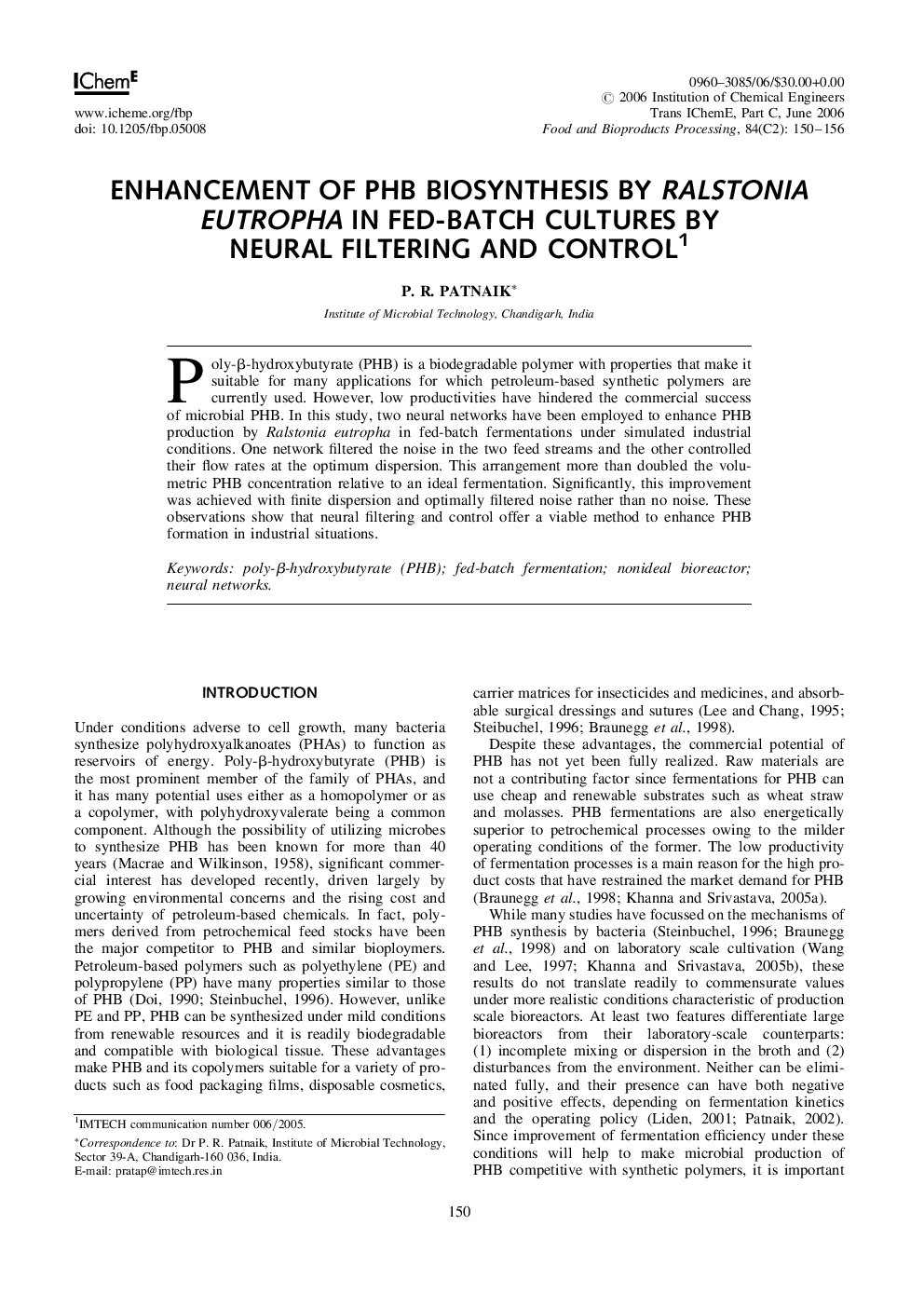| Article ID | Journal | Published Year | Pages | File Type |
|---|---|---|---|---|
| 19304 | Food and Bioproducts Processing | 2006 | 7 Pages |
Poly-β-hydroxybutyrate (PHB) is a biodegradable polymer with properties that make it suitable for many applications for which petroleum-based synthetic polymers are currently used. However, low productivities have hindered the commercial success of microbial PHB. In this study, two neural networks have been employed to enhance PHB production by Ralstonia eutropha in fed-batch fermentations under simulated industrial conditions. One network filtered the noise in the two feed streams and the other controlled their flow rates at the optimum dispersion. This arrangement more than doubled the volumetric PHB concentration relative to an ideal fermentation. Significantly, this improvement was achieved with finite dispersion and optimally filtered noise rather than no noise. These observations show that neural filtering and control offer a viable method to enhance PHB formation in industrial situations.
